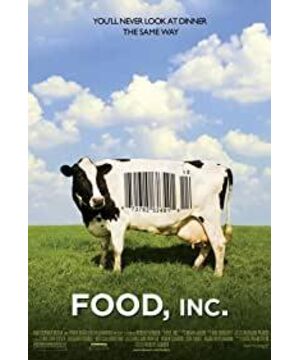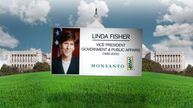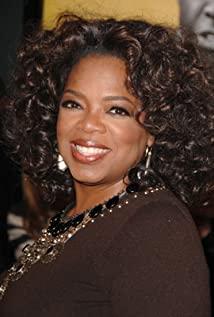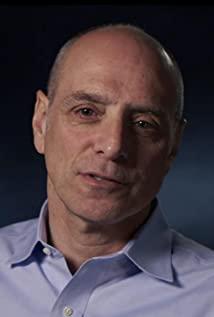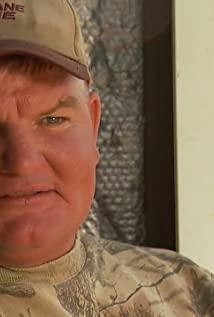Twenty years later, in 2009, the famous American journalist and writer Michael Pollan said in the documentary "Food, Inc." that the dazzling array of choices in American supermarkets is actually an illusion and prosperity. The appearance of concealed the cold reality of the large-scale industrialization of agriculture in the United States. Behind countless kinds of commodities, there are actually only a few super-agricultural enterprises and two crops of corn and soybeans. Yeltsin saw the huge advantage of American abundance. The documentary "Food Company" should help the audience to recognize the shadow of this huge advantage.
Michael Poland wrote two books on healthy eating in recent years, "The Omnivore's Dilemma" (The Omnivore's Dilemma) and "In Defense of Food" (In Defense of Food), another writer Eric Schlosser (Eric Schlosser) Earlier he wrote the best-selling book "Fast Food Nation" exposing the ills of American fast food culture. I have read all three books, so there is no strangeness to watching this documentary, Michael Poland And Eric Schlosser in the film's role as an opinion interpreter. They repeatedly emphasized that the rapid development of agriculture in the past 50 years has brought more changes to food production than in the 10,000 years before that. After the end of World War II, with the popularization of fertilizers and pesticides, coupled with the scale effect brought about by large-scale mechanized operations, traditional farms and pastures have basically been transformed into industrial production lines. Let's put it this way, you may have expected to hear pastoral songs before, but now you can basically only hear the roar of the machine. When people get a lot of cheap food and no longer worry about food and clothing, they actually pay a high price.
Decades ago, Rachel Carson pointed out the negative impact of the use of chemical fertilizers and pesticides on the environment. Michael Poland’s current concerns are the food safety and health issues after industrialization, such as the brutal treatment of animals, E Explosive spread of Coli and Salmonella bacteria, obesity caused by fast food, etc. In an industrialized operating system, chickens, cows, and pigs live in extremely inhumane environments, with small, dim, and dirty spaces, and it is difficult to separate food and excrement. Their sole purpose in this world is to grow meat, and then they enter the slaughterhouse to become various meat products. The film collected a lot of candid footage, and those animals that are very sick or disabled are treated equally, enter the system of slaughter, segmentation, and ground meat, and eventually become steaks and hamburgers.
No matter what the pigs, cows and sheep love to eat, in the food production line, they all eat corn products. Corn production in the United States is amazing, and under the government's agricultural subsidy policy, the price is super cheap. It is widely used in all aspects of food production, and it is not an exaggeration to call it the strong cornerstone of the American food system. The vast majority of chickens, cattle, pigs and even aquatic products raised in the United States use corn as food, and corn syrup is also heavily permeated in candies, soft drinks, and dairy products. Whether you eat steak, grilled chicken, ham, or smoked salmon, until you drink Coke, you are actually eating corn. The food we eat is becoming less and less nutritious, but in order to obtain the necessary nutrients, we have to eat more and more, thus inevitably falling into a vicious circle.
After cattle have eaten corn, they grow meat very quickly. After people have eaten the food that these animals have turned into, they grow meat very quickly. In the documentary, I interviewed a Latino immigrant whose parents were very busy raising their family. They had no money or time to prepare three meals a day. They basically depended on fast food for their livelihood. American fast food is cheap and full, but viewers only need to look at the waistline of a family to know the true price of cheap food. The father’s diabetes is already very serious and is facing the danger of vision loss and even blindness.
There are not a few American families suffering from overweight. In fact, obesity has become a health hazard in the United States. According to current trends, one-third of Americans born after 2000 will suffer from diabetes. If this is the case, no matter how Obama reforms and how successful the reforms are, the US healthcare system can only face one prospect: bankruptcy. Considering the huge increase in medical expenses caused by unhealthy diets, who can continue to sing the praises of cheapness unconditionally?
Another problem brought about by changing the nature of animals is the proliferation of germs. Cows originally eat grass, but after being forced to eat corn, the digestive system is difficult to adapt, resulting in increased toxicity of excrement. One of the direct consequences is that food poisoning cases caused by E. coli often occur. A mother in the documentary started to promote food safety after her son died of E.coli infection after eating a hamburger. She often rushed to the capital, Washington, to urge the government to strengthen supervision of the food industry.
The U.S. food industry adopts the slogan of "faster, fatter, bigger, cheaper". Although they can never add melamine to milk and then sell it with water, it does not mean that government supervision can be missing. Driven by profits, it is difficult for food companies to put the long-term and fundamental interests of consumers in the most important position. If the government does not act, if consumers do not awaken, the situation of paying high prices for cheap food in the United States will continue.
Only pigs, cattle, and sheep are happy, and those who eat pork, beef, and mutton are happy. Everyone shouldn't miss this documentary, but I suggest you watch it after eating pork, beef, and lamb. After watching a movie, it may take a relatively long time before you regain your interest in eating meat.
View more about Food, Inc. reviews


